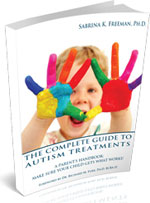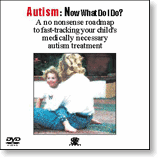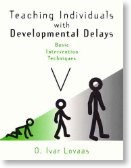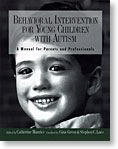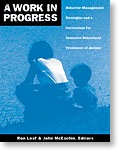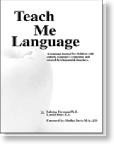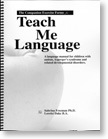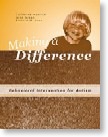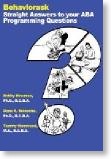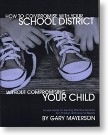Autism is too serious for pretending
24/10/11 15:53
Seemingly every day, a person purportedly afflicted with autism gives an eloquent speech on a sophisticated concept. Or, equally as disturbing, we read about someone who independently goes through life and at the age of 25, is suddenly diagnosed with autism. Unfortunately, Autism Speaks plays along with this fairy tale every day! The latest in misinformation coming from Autism Speaks is a story about a man who discovers that he has autism. The individual who was diagnosed as an adult is a talented, witty writer, with an excellent command of the English language.
To this man’s credit, he defines himself as having Asperger’s Syndrome; however, it is Autism Speaks that gins up the autism diagnosis when they say that this man:
“... struggled with undiagnosed autism for nearly 25 years. His diagnosis has enabled him to embrace his individuality and move forward. He writes and speaks publicly about his life with autism, hoping to inspire greater understanding and acceptance.”
Perhaps Autism Speaks intends to enhance a fundraising effort by labeling people with Asperger’s Syndrome as having autism; I cannot think of another reason why they tenaciously hang on to the complete fiction that Asperger’s Syndrome equal autism. I’ve always believed that truth is the best policy; it is disingenuous for Autism Speaks to stretch the truth about autism in this way, and something needs to be said about it. Autism is the most misleading diagnosis of this generation.
People who are eloquent, quirky, socially blind, but intelligent, self-diagnosed or diagnosed as adults do not have autism … they have Asperger’s Syndrome.
Why should Asperger’s Syndrome be regarded as a problematic term? I do not find it objectionable in the least. It allows for people who have severe social difficulties to recognize that they are different; however, those with Asperger’s Syndrome have huge potential to be productive, happy, independent adults. A diagnosis can be the first step to treatment; however, if a person with Asperger’s Syndrome is called autistic, that is confusing and misleading to the person with Asperger’s Syndrome, never mind that person’s family, other families of children with autism, and the public at large. By calling people with Asperger’s Syndrome autistic, it is a complete misrepresentation of what autism really is, and what it is not. The label of autism is also extremely stigmatizing and can pose an unnecessary barrier with which the person with Asperger’s Syndrome must contend. A counterfeit autism label is also a misrepresentation of Asperger’s Syndrome.
If the psychiatric community deems it so, a preferable option to eliminating the Asperger’s Syndrome diagnosis in the Diagnostic Statistical Manual of Mental Disorders, is to eliminate the “High Functioning” autism description.
If you are sufficiently high functioning to:
1) not be diagnosed until adulthood,
2) be sufficiently independent to live on your own, and
3) verbally advocate for your needs without an interpreter?
... then guess what? You do not have autism; you have Asperger’s Syndrome, and you should rejoice! You have lots of potential to lead an independent life where you are the master of your own destiny and need not rely completely on others to help you navigate your way through life. Embrace your Asperger’s Syndrome!
To this man’s credit, he defines himself as having Asperger’s Syndrome; however, it is Autism Speaks that gins up the autism diagnosis when they say that this man:
“... struggled with undiagnosed autism for nearly 25 years. His diagnosis has enabled him to embrace his individuality and move forward. He writes and speaks publicly about his life with autism, hoping to inspire greater understanding and acceptance.”
Perhaps Autism Speaks intends to enhance a fundraising effort by labeling people with Asperger’s Syndrome as having autism; I cannot think of another reason why they tenaciously hang on to the complete fiction that Asperger’s Syndrome equal autism. I’ve always believed that truth is the best policy; it is disingenuous for Autism Speaks to stretch the truth about autism in this way, and something needs to be said about it. Autism is the most misleading diagnosis of this generation.
People who are eloquent, quirky, socially blind, but intelligent, self-diagnosed or diagnosed as adults do not have autism … they have Asperger’s Syndrome.
Why should Asperger’s Syndrome be regarded as a problematic term? I do not find it objectionable in the least. It allows for people who have severe social difficulties to recognize that they are different; however, those with Asperger’s Syndrome have huge potential to be productive, happy, independent adults. A diagnosis can be the first step to treatment; however, if a person with Asperger’s Syndrome is called autistic, that is confusing and misleading to the person with Asperger’s Syndrome, never mind that person’s family, other families of children with autism, and the public at large. By calling people with Asperger’s Syndrome autistic, it is a complete misrepresentation of what autism really is, and what it is not. The label of autism is also extremely stigmatizing and can pose an unnecessary barrier with which the person with Asperger’s Syndrome must contend. A counterfeit autism label is also a misrepresentation of Asperger’s Syndrome.
If the psychiatric community deems it so, a preferable option to eliminating the Asperger’s Syndrome diagnosis in the Diagnostic Statistical Manual of Mental Disorders, is to eliminate the “High Functioning” autism description.
If you are sufficiently high functioning to:
1) not be diagnosed until adulthood,
2) be sufficiently independent to live on your own, and
3) verbally advocate for your needs without an interpreter?
... then guess what? You do not have autism; you have Asperger’s Syndrome, and you should rejoice! You have lots of potential to lead an independent life where you are the master of your own destiny and need not rely completely on others to help you navigate your way through life. Embrace your Asperger’s Syndrome!
